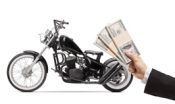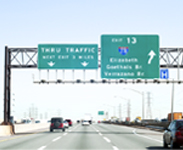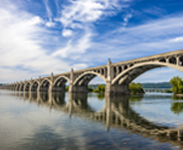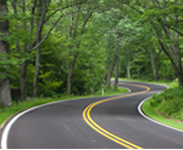Moto Camping
What sounds better than open-air riding and then immersing yourself in the wilderness? Moto camping can be great fun and a way to enjoy the outdoors, either alone or in a group. But preparation is key for an amazing moto camping experience. Safe riding and packing the right gear will always lead to a successful moto camping trip.
Pre-planning your trip will help make it smooth and efficient. If traveling with a group, plan the route with everyone’s riding skills in mind. If the trip requires off-road riding, remember that a cruiser or sport bike may have difficulty or not be able to do the ride at all. Always try to think ahead before jumping into a situation that may be dangerous or impassible.
A motorcycle with storage like saddlebags or a travel pack will allow for more gear, but it will also make the motorcycle heavier. This can be dangerous if the person riding the heavily packed motorcycle cannot adjust for it.
A motorcycle safety check is always a good idea before heading out on a road trip. A great list and video can be found HERE. Once a thorough inspection of the motorcycle is done, it’s time to plan how to secure camping gear. Saddlebags, travel packs, luggage racks, sissy bars and tank bags are great places for storage and securing gear. Some aftermarket companies even make removable sissy bar/luggage racks for motorcycles.

As for the gear needed, that can depend on the length of the trip, the temperature of the trip and the environment you’re camping in. Gear that can be used for moto camping can include
- Tent – (Hammock tents are great because they are lightweight and allow the sleeper to exclude a sleeping mat)
- Sleeping bag – (the type depends on how cold the conditions are)
- Sleeping mat/roll
- Comfortable clothing – (pack for temperature conditions)
- Comfortable shoes – (pack for the conditions)
- A knife or small hatchet – (good for splitting wood)
- Flashlight/electric lantern
- Rope/bungee cords
- Matches/lighter
- Collapsible cooler
- Food – (canned or packaged food make it easier to haul)
- Water
- Water bottle/thermos
- Rain gear
- Small tarp – (may need to use in case of rain)
- Collapsible camping stove and kettle
- Cooking utensils/dishes and biodegradable dish soap
- Garbage bags
- Biodegradable toilet paper
- Foldable camping chair – (optional as a stump or rock may suffice)
- Bug spray
- Sun tan lotion
- Biodegradable shampoo/soap
There is a lot of really cool camping tech out there. Companies make tents that attach to the motorcycle as a lean-to and some companies even make tents that include a motorcycle garage. Camping gear has become more compact and collapsible, while flashlights are now smaller and brighter. Clothing and footwear should be packed for the temperature forecasted and for wet or dry conditions.
Food like jerky and nuts are great for protein and small in size. Dried fruits and berries are also excellent sources of nutrients in smaller packages. Water may also be able to be sourced from the site itself, but it has to be potable. Ice may also be able to be sourced locally so that it may not be needed for the long haul.
Securing the gear with rope or bungee cords is very important. The gear cannot come loose during the ride and the weight should be distributed evenly. Uneven weight may cause very dangerous ride conditions. Gear coming loose may cause damage to the motorcycle or other vehicles on the road. If gear cannot be secured to a motorcycle, sometimes a chase vehicle carrying the gear is the best alternative. This vehicle can also help if there are problems along the ride.
With a little preparation and careful planning, a moto camping trip can be a fun and memorable experience. Campfire stories, swimming in creeks, hiking trails and smores can all be future fond memories. Enjoy the ride and stay safe.
Plymouth Rock Assurance is a marketing name used by a group of separate companies that write and manage property and casualty insurance in multiple states. Motorcycle insurance in New Jersey and Pennsylvania is underwritten by Rider Insurance Company. Each company is financially responsible only for its own insurance products. Actual coverage is subject to the language of the policies as issued by each separate company.





